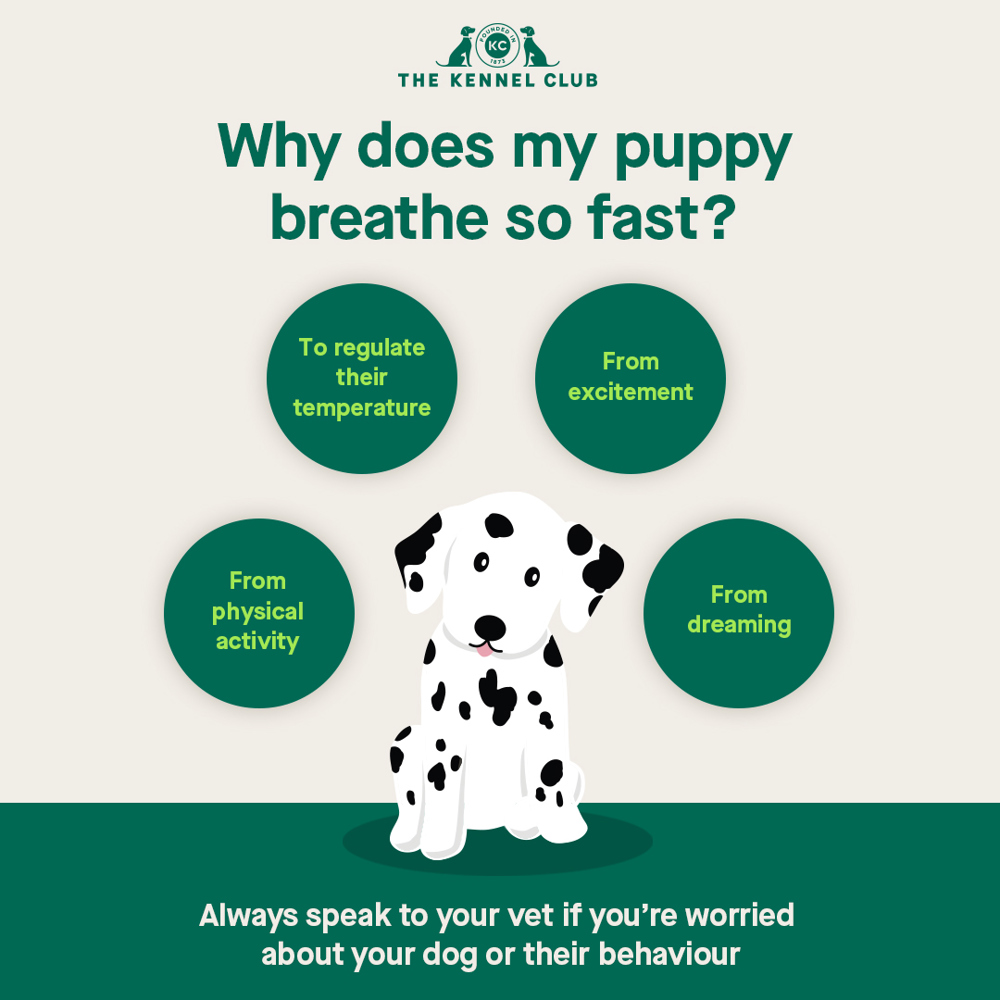
Welcoming a new puppy into your home is an exciting experience, but it's natural for new pet parents to become concerned when their furry friend exhibits unusual behaviours. One common observation that may cause worry is rapid breathing. Understanding the reasons behind a puppy's fast breathing is crucial for ensuring their well-being and addressing any potential health concerns.
Normal puppy breathing
Puppies, like human babies, tend to breathe faster than adult dogs. This is often perfectly normal and can be attributed to their higher metabolic rate. Young animals, in general, require more oxygen to support their growth and development.
Physical activity
Increased activity levels naturally lead to faster breathing. Puppies are known for their boundless energy, and during play or exercise, their respiratory rate can spike. It's essential to differentiate between fast breathing due to activity and rapid breathing at rest.
Temperature regulation
Dogs regulate their body temperature through panting. Puppies, in particular, may pant more than adult dogs as they have a harder time regulating their body temperature. If the environment is warm, rapid breathing can be a normal response.
Excitement
Puppies are highly sensitive and can get excited or stressed easily. New environments, interactions, or stimuli may trigger rapid breathing as a response to heightened emotions.
Dreaming
Puppies, like adult dogs, may exhibit rapid breathing during sleep. This is often associated with dreaming and is considered a normal part of the sleep cycle.
When to be concerned
While rapid breathing is often normal in puppies, there are instances where it may indicate an underlying issue:
Respiratory infections
Infections affecting the respiratory system, such as pneumonia or kennel cough, can lead to rapid or laboured breathing. If accompanied by other symptoms like coughing or nasal discharge, veterinary attention is warranted.
Heart issues
Congenital heart conditions or other cardiac problems can manifest as rapid breathing. If your puppy's breathing appears abnormal or is accompanied by lethargy, it's essential to consult a veterinarian.
Heat stroke
Puppies are more susceptible to heat-related issues. Rapid breathing, especially in conjunction with excessive panting, may be a sign of heat stroke. Ensure your puppy has access to water and a cool environment.
Allergic reactions
Allergies or exposure to irritants can cause respiratory distress. If rapid breathing is sudden and severe, consult with a veterinarian to rule out allergies or anaphylaxis.
What to do?
Monitor behaviour
Keep a close eye on your puppy's overall behaviour. If rapid breathing is accompanied by other concerning symptoms or persists for an extended period, seek professional advice.
Check environment
Ensure your puppy is in a comfortable and adequately ventilated environment. Avoid exposing them to extreme temperatures, and provide a cool, shaded space.
Regular Veterinary check-ups
Schedule regular check-ups with a veterinarian to monitor your puppy's health and catch any potential issues early.
While rapid breathing in puppies is often a normal part of their development, it's crucial for pet parents to be attentive to changes in behaviour and respiratory patterns. By understanding the potential causes and being proactive in seeking veterinary advice when needed, you can ensure your puppy grows up healthy and happy. Always consult with a veterinarian for personalized guidance based on your puppy's specific needs and circumstances.
Find a vet near you
If you're looking for a vet practice near you, why not visit the Royal College of Veterinary Surgeons' Find a vet page.
Think your dog may be affected?
If you're worried about your dog's health, always contact your vet immediately!
We are not a veterinary organisation and so we can't give veterinary advice, but if you're worried about any of the issues raised in this article, please contact your local vet practice for further information
